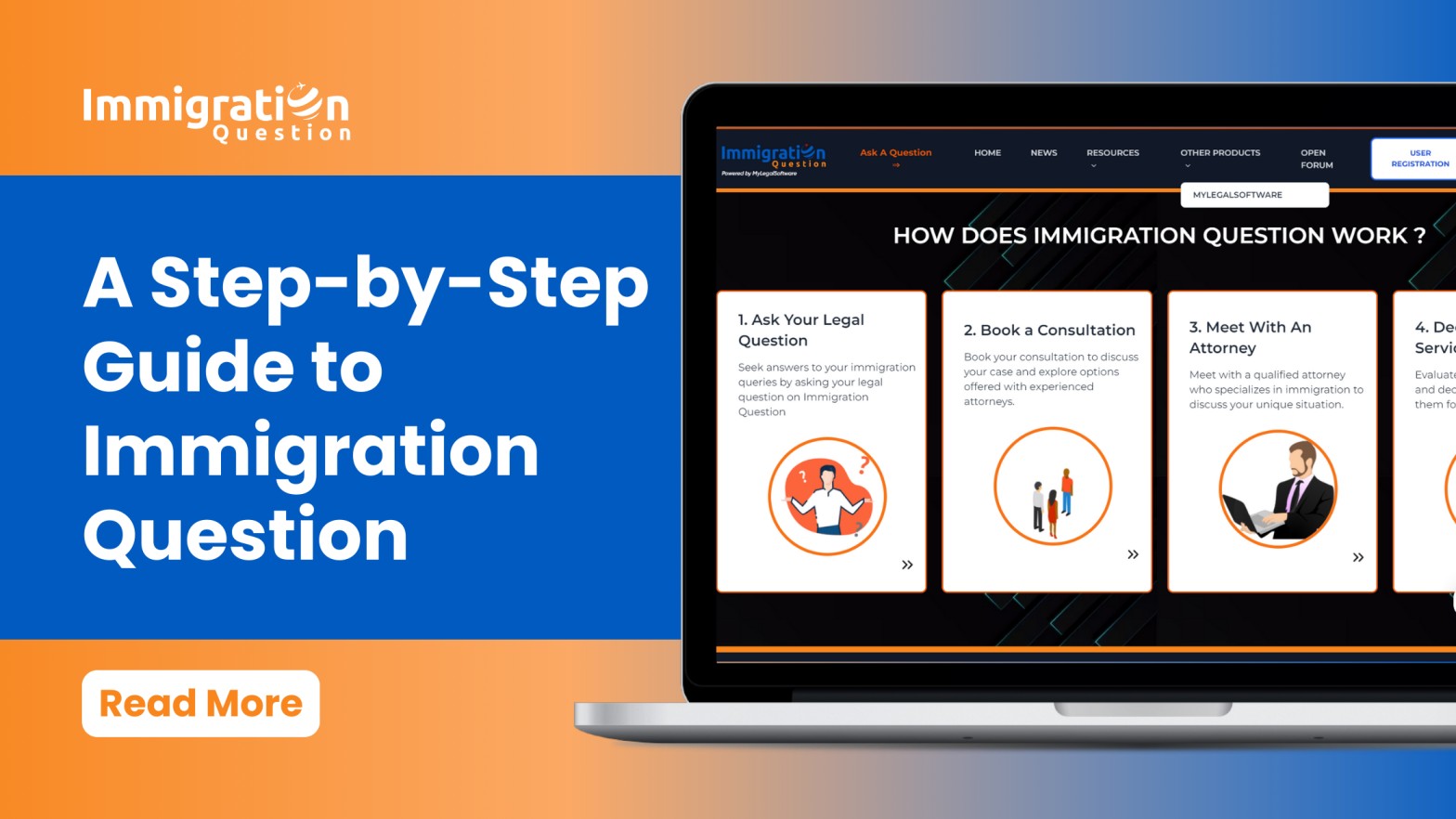Immigration law processes are generally daunting due to their complexities. While attempting to navigate the complexities, it is normal to have numerous immigration questions, including concerns about airport immigration questions. Instead of getting thrown into the deep waters of immigration law without any guidance, you can take advantage of certain resources and have a smoother immigration process.
One major resource is Immigration Question, a platform that connects you with immigration lawyers in the U.S. for free. You can ask your questions and gain guidance on the intricacies of your case even before hiring a lawyer. This article will explore the best ways to access guidance to your immigration procedures.
Common Immigration Law Pitfalls and How to Avoid Them
Although Immigration law has several complexities, knowing the common mistakes can help you prepare for a smoother procedure. Here are some typical obstacles encountered by immigrants and solutions for overcoming them.
1. Incomplete Application
A major mistake made in immigration procedures is having incomplete or inaccurate applications. For example, missing essential details on your application or submitting it without a complete document could easily lead to rejections and delays.
Therefore, it is best to pay keen attention to details to avoid such pitfalls. Furthermore, carefully review your application and double-check to ensure it meets all requirements. If you have any immigration questions, seeking professional advice can help you avoid common errors.
2. Missing Deadlines
When it comes to immigration policy, missing any deadline is detrimental. These procedures have strict deadlines for submitting documents, filling out applications, or making court appearances. Furthermore, there are rarely grace periods for these deadlines, and missing them even by a few hours can significantly affect the result of your immigration case. Therefore, if you have any immigration questions, it is crucial to seek guidance promptly to ensure you meet all deadlines.
To avoid such problems, you can develop a timeline, set reminders, and prepare early for your court appearances. Ensure you plan all aspects of your procedures and have several reminders for all aspects to ensure nothing falls through the cracks.
3. Lack of Proper Documentation and Organization
Although it may take some time to obtain and arrange the necessary paperwork, it is essential to always have the right documents. Failing to provide the right documents, falsifying them, or using expired documents can lead to the immediate rejection of your application.
Therefore, you can avoid such dire consequences by using a comprehensive checklist to ensure all your documents are gathered and up to date. Additionally, confirm where original documents are required and when photocopies are sufficient. Knowing this will help you provide the right files and meet deadlines adequately. If you have any immigration questions, seeking professional advice can further assist in this process.
4. Not Updating the USCIS
The United States Citizenship and Immigration Services (USCIS) has policies and regulations in immigration law. When you make changes to your address, employment status, marital status, and others, you are expected to update the regulatory body.
Failing to do this would cause inaccurate information on your documents and lead to complications in your legal procedures.
Ensure you update the USCIS on significant changes and use Form AR-11 to report them.
5. Understanding Legal Policies
Immigration rights and laws change ever so often; without staying up to date on the changes, you can lose your case even before it begins. Moreover, it can be quite challenging to comprehend the legal nuances of immigration rules, documentation requirements, and visa requirements.
Therefore, staying informed and seeking answers to any immigration questions you may have is crucial to navigating these complexities successfully.
It is advisable to consult with immigration law professionals or attorneys for legal advice. They can help you navigate the procedure and ensure all legal criteria are met. Need guidance on immigration law procedures? Immigration Question (IMQ) can help you match with an immigration lawyer and get answers to all your questions for free. Sign up today!
Examining the Pros and Cons of Current Immigration Policies
Understanding immigration policy is essential and can benefit individuals directly and indirectly. Let’s explore how
1. Economic Benefits
Immigration laws frequently create economic opportunities. They make it possible for people to look for work, launch enterprises, and support the regional economy. Work visa policies provide avenues to permanent residency, allowing immigrants to enter the labor force, generate income, and enhance their financial security.
2. Educational Benefits
Specific immigration policies, such as in-state tuition rates, scholarships, and fee discounts for international students, provide access to education. A degree can lead to improved career opportunities and personal development.
If you’re an immigrant, knowing the immigration laws pertaining to education will help you further your studies and develop your abilities.
3. Social Integration
Social integration policies benefit immigrants and communities that welcome them. Socially and economically successful immigrants have a strong sense of belonging to their new community.
Knowledge of laws supporting language acquisition, cultural interchange, and community involvement can improve your integration experience.
4. Healthcare and Medical Services:
Access to social services, healthcare, and safety nets is made possible by certain policies. Knowing these guidelines guarantees that you can get the assistance you require when you need it.
To maximize these services, familiarize yourself with local policies regarding Medicaid, healthcare eligibility, and other social programs.
5. Citizenship
Long-term stability is achieved through policies that allow routes to citizenship. The benefits of citizenship include the ability to vote, immunity from deportation, and full involvement in public life. To work toward obtaining U.S. citizenship, research the requirements and timetables for naturalization.
6. Family Reunion
Immigration laws that are centered on family reunite people with their loved ones. Knowing the regulations makes it easier to navigate the process.
Knowing the various family-sponsored visa categories can help with reunions if you have relatives residing outside the country.
Still need guidance on immigration law complexities? Try Immigration Question for free and get answers to all your immigration needs. Sign up now.
Frequently Asked Immigration Questions and Answers
Here are some frequently asked questions.
1. How can I find out which visa I need?
For accurate and current information, don’t forget to research the particular requirements for each kind of visa and refer to official national government sites.
2. What should I do if my visa application is rejected?
Keep in mind that every case is different, so get tailored guidance according to your unique situation.
3. Can I work on a tourist visa?
Working or finding employment on a tourist visa is prohibited.
4. How long does the immigration process take?
While there are broad approximations, specific instances may differ. To ensure you are aware of the most recent processing times, always visit official government websites. Consider speaking with an immigration lawyer or getting in touch with the appropriate immigration authorities if you have any specific queries regarding your situation.
5. What if I want to bring my family with me?
There are Visa options that allow you to bring your family. Examine each visa option carefully before processing. You can also seek professional advice from legal practitioners.
6. Do I need to take an English language test?
Check the exact requirements for the country you’re interested in, as they may have additional specifics and variations. The English language requirements for immigration vary depending on the country.











